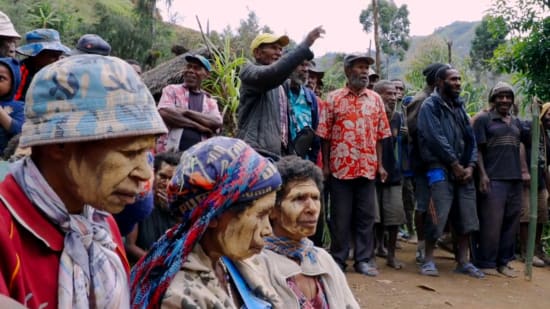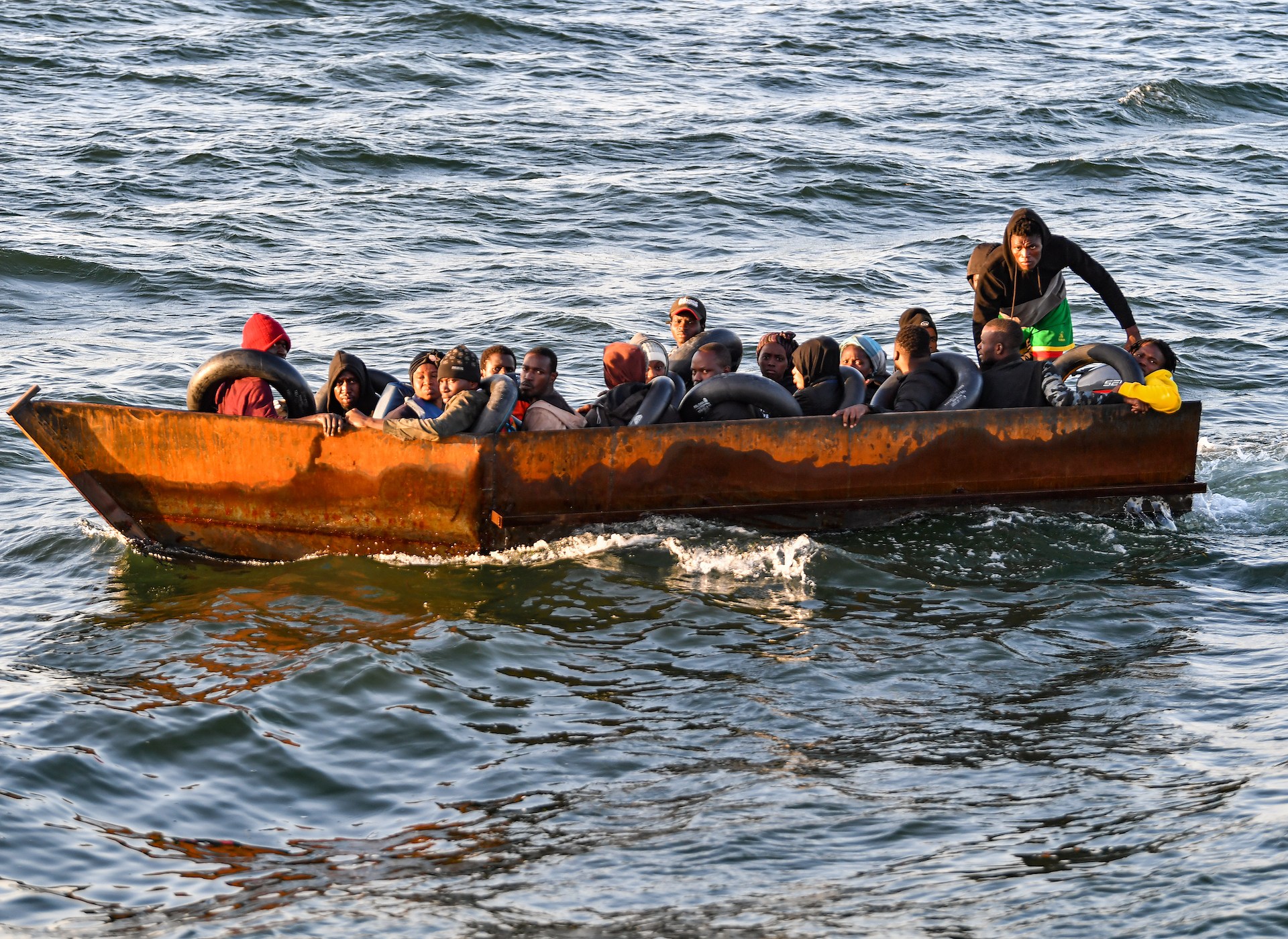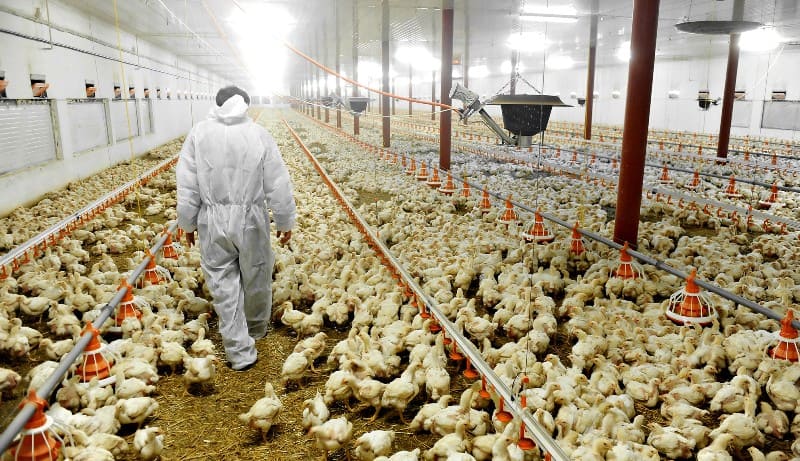Fighting witchcraft violence in Papua New Guinea
Video
In isolated communities of the Papua New Guinea Highlands fear of witches and sorcery is rife. Women and men accused as witches are tortured, mutilated, and burnt alive. Wellington film maker Paul Wolffram tells the story of a lone woman’s fight against the swelling tide of sorcery killings
It was at the end of a long day of walking back and forth over the dusty roads of Goroka town in the Highlands of Papua New Guinea that I first met Evelyn.
I’d spent the morning interviewing three inmates in the regional penitentiary, Bihute Prison, about their participation in the murder of three people who they believed had killed a relative. That afternoon I interviewed a policeman and a government official about the increasing impact of ‘sanguma’ – sorcery violence, on the people of the region.
Everyone I talked with agreed that ‘sanguma’ – sorcery violence, was a serious issue. I ended each interview by asking the men, what can be done to quell the violence and halt the spread of this growing problem. Not one of them was able to provide an answer, they said, “the problem was simply too big,” and “there are no resources to help.” As I climbed into the back of a rust filled Econovan, the wife of one of the officials who had lingered in the background during the last interview, rushed to hand me a piece of paper. She handed over the torn note and she said, “You must find her.”
The note contained the hastily written name ‘Evelyn Kunda’ and a phone number. By the time I climbed out of the Econovan, back in the centre of Goroka, I’d made contact and walked directly to the Catholic mission.
There I found Evelyn Kunda. She looked like many other women in Goroka, dressed in a Meri blouse – a Mother Hubbard style dress. Her hair was deep back and densely curled. She looked to be in her early fifties but life in the Highlands towns and villages can make it hard to tell. What struck me the most about her appearance was the warmth of her smile and the intelligence in her eyes.
I didn’t know why the official’s wife had to told me to find her, I struggled to find a place to start. I told Evelyn, that I was researching ‘sanguma’ – sorcery violence, in the Highlands, and asked what she might know.
Evelyn explained that she, along with other volunteers of the Catholic Church worked to hide, rehabilitate, and eventually, where possible, relocate the survivors of sorcery accusation related violence.
As trucks expelled oily exhaust pushing dust down the road behind us, she described how difficult and dangerous the work had become for her and other volunteers in Goroka. “In one instance we were looking after a woman whose husband had beaten her. He wanted to kill her. I took her to my house. Then her husband wanted to kill us as well.” Evelyn said.
For a time, the Catholic church provided Evelyn with a house in their compound but that soon became problematic, and the women were asked to leave. Now Evelyn runs an unofficial safe house hidden among the shanties on the outskirts of the town. She does her best to provide for them, but she explains, “They often can’t talk with us, they find it very difficult to talk about what has happened, they are traumatised”. She provides them with a place to sleep, food from her tiny garden, and whatever she can afford from the markets and trade stores.
At the end of our interview, I posed the same question to Evelyn that I’d asked the officials earlier that day. “What can we do to stop sorcery violence?” Evelyn’s response was immediate and practical, “We do all we can with whatever we have. Solutions can’t be found by sitting on our hands.” Her work is proof that she’s a woman of action.
The following year in 2019 I visited Evelyn’s safe house. A small two room dirt floored hut that she’d built with offcuts of timber, bush materials, and sheets of old corrugated iron. At the time she had two women living with her. One had escaped a violent partner and the other had been beaten as an accused witch. Evelyn is desperate for support.
We began working together on a film, with the aim of showing the extent of the impact of ‘sanguma’ – sorcery violence, in the Highlands. I also wanted to show the world the incredible work Evelyn is doing to resist the violence, rescue survivors, and educate others against gender and sorcery-based violence.
I was to return to Goroka in 2020 to complete the filming and to bring Evelyn back to New Zealand to work with us on the post-production but, like so many other plans, COVID-19 interrupted them.
The last two years have been more difficult than usual in the dusty frontier towns in the Highlands. As COVID-19 swept through communities in Papua New Guinea and the morgue at Goroka hospital filled to overflowing, the amount of sorcery accusation related violence raised too.
Local research Fiona Hukula said that there was a lack of clear communication about COVID-19 available in PNG and significant amounts of disinformation. The National newspaper reported on a 45-year-old woman and her daughter who were accused of sorcery and tortured by their relatives after her husband died of COVID-19 in April last year.
Emma Dawson, Caritas Australia’s Pacific Manager, described increasing domestic violence reports and sorcery accusation related violence in July last year. The violence occurs when a community blames a death or illness on sorcery. They identify a local man or woman as a witch and torture and kill them in shocking scenes of mob violence.
Earlier 2021 a young boy died suddenly in the Highlands province of Hela. Within a few days a woman’s body was left by the side of the road. She’d been lynched and killed by her own community.
Ruth Kissam who works for a local NGO, the Tribal Foundation, said to the ABC that violence like this doesn’t have a cultural background, even in areas where belief in sorcery was traditional. “Sorcery accusation related violence picked up about 10 to 15 years ago. Culturally, there is a deep belief in sorcery in many parts of PNG but it was never violent.” Kissam said that this is a law-and-order problem.
Back in Goroka there were other instances where people were known to have died from COVID-19 but the community and family refuse to accept the diagnosis and in one case a woman was burnt with hot irons and thrown from a bridge. She survived, but her daughter and other family members were also targeted.
For Evelyn Kunda at the grass roots, running a safe house in a community where her presence and work are not always supported by landowners, life has become even more tenuous. Over the last two years I’ve maintained constant contact with her. At one time she had eight adults and children living in her tiny house.
Last week Evelyn was accosted by a group of women who beat her because of the work she does with the community’s most vulnerable.
Evelyn has no government support; she is not linked with any national or international NGO or aid organisation. She volunteers for this work out of compassion. Despite these difficulties, she is making a real difference to the lives of the women, men and children she houses and supports.
How long she will be able to continue this work is unknown.
PledgeMe Link to support Evelyn Kunda’s safe house: https://www.pledgeme.co.nz/projects/7287-fundraising-for-evelyn-s-safehouse






